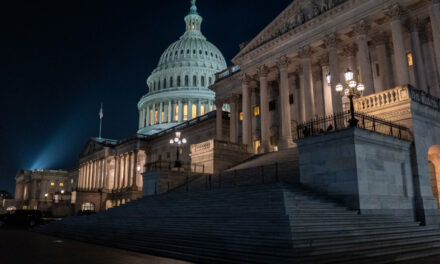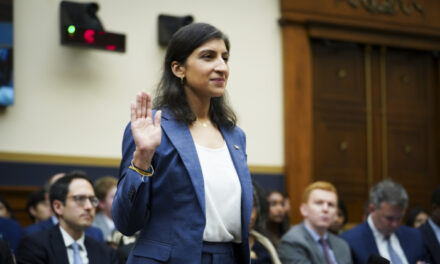We support our Publishers and Content Creators. You can view this story on their website by CLICKING HERE.
Federal law requires special counsels to prepare a final report outlining their prosecution decisions and submit it to the attorney general.
Special counsel Jack Smith has resigned from the Department of Justice (DOJ), prosecutors revealed in a court filing, with the announcement marking an end to Smith’s role spearheading two investigations into President-elect Donald Trump.
Smith was appointed by Attorney General Merrick Garland to investigate Trump in two separate cases—one charging him with election-related crimes and another accusing him of illegally retaining classified documents at his Mar-a-Lago home after he concluded his first term at the White House. Both cases were challenged over the legitimacy of Smith’s appointment.
After Trump won the election in November, Smith dropped the charges against Trump in both cases.
Both cases against Trump were dismissed “without prejudice,” meaning charges could be refiled after Trump finishes his second term as president. Standing in the way of potential re-prosecution is the statute of limitations, as well as the possibility that Trump could use his presidential powers to pardon himself.
The judge cited the need “to prevent irreparable harm” that could be caused by the release of Smith’s report and “to permit an orderly and deliberative sequence of events” in the portion of the case that remains against the two co-defendants.
The attorney general told lawmakers that the report would be released once the related criminal cases are fully resolved.
Federal law requires special counsels to prepare a final report outlining their prosecution decisions and submit it to the attorney general, who has the discretion to determine whether the report will be made public.
Smith’s resignation punctuates the end of his criminal pursuit of Trump over the past two years or so.
In a key development during litigation, the election case led to a July 1, 2024, U.S. Supreme Court decision indicating that presidents can enjoy some immunity from prosecution for their official acts and duties.

 Conservative
Conservative  Search
Search Trending
Trending Current News
Current News 







